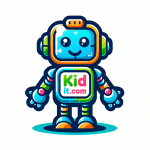Coding 10 Common Mistakes to Avoid- How to Provide Effective IT Education for Kids
In today's digital age, technology plays a crucial role in our daily lives. As technology continues to advance, it is becoming increasingly important for children to have a strong foundation in IT education. Having a good understanding of coding and programming can set kids up for success in the future, whether they choose to pursue a career in technology or not.
As a provider of tech education and resources for children, it is important to ensure that kids are receiving quality instruction and guidance when it comes to coding. In order to provide effective IT education for kids, it is important to avoid common mistakes that can hinder their learning process. Here are 10 common mistakes to avoid when teaching kids how to code:
1. Starting too advanced
One of the biggest mistakes that educators can make when teaching kids how to code is starting them off with advanced programming languages or concepts. It is important to remember that kids are still developing their cognitive skills and may not be able to grasp complex concepts right away. Starting with simple, easy-to-understand languages such as Scratch or Blockly can help kids build a strong foundation in coding before moving on to more advanced languages like Python or Java.
2. Lack of hands-on practice
Another common mistake is not providing enough hands-on practice for kids to apply what they have learned. Coding is a skill that requires practice and repetition in order to master, so it is important to give kids plenty of opportunities to write their own code and see the results in action. Providing hands-on projects and challenges can help kids stay engaged and motivated to learn.
3. Not making it fun
Coding can be a challenging and complex subject, so it is important to make it fun and engaging for kids. Incorporating games, puzzles, and interactive activities into coding lessons can make the learning process more enjoyable and help kids stay focused. Making coding fun can also help kids develop a passion for technology and inspire them to pursue a career in IT in the future.
4. Not providing enough support
Some kids may struggle with coding at first, so it is important to provide them with enough support and guidance to help them succeed. Offering one-on-one assistance, tutoring, or additional resources can help kids overcome obstacles and build their confidence in coding. It is important to create a supportive learning environment where kids feel comfortable asking questions and seeking help when needed.
5. Focusing too much on theory
While it is important for kids to understand the theoretical aspects of coding, it is also important to balance theory with practical application. Kids learn best by doing, so it is important to provide them with real-world examples and projects to work on. Encouraging kids to write their own code and solve problems can help them develop critical thinking and problem-solving skills that are essential in coding.
6. Ignoring creativity
Coding is not just about writing lines of code, it is also about being creative and thinking outside the box. Encouraging kids to be creative in their coding projects can help them develop their problem-solving skills and come up with innovative solutions. Providing opportunities for kids to create their own projects and showcase their creativity can help them stay motivated and engaged in coding.
7. Not adapting to individual learning styles
Every child learns differently, so it is important to adapt teaching methods to accommodate individual learning styles. Some kids may learn best through visual aids, while others may prefer hands-on activities or verbal instruction. It is important to be flexible and open to different learning styles in order to effectively teach kids how to code.
8. Overwhelm with too much information
Teaching kids how to code can be overwhelming if they are bombarded with too much information at once. It is important to break down complex concepts into smaller, more manageable chunks and provide kids with clear, step-by-step instructions. Encouraging kids to take breaks and review previous lessons can help them retain information and stay focused throughout the learning process.
9. Not setting clear goals
In order to help kids stay motivated and track their progress, it is important to set clear goals and objectives for coding lessons. Providing kids with specific tasks and projects to work on can help them stay engaged and focused on their learning. Setting achievable goals can also help kids build confidence and feel a sense of accomplishment as they make progress in their coding skills.
10. Lack of real-world applications
Finally, one of the biggest mistakes that educators can make when teaching kids how to code is not showing them how coding is used in the real world. Kids may struggle to see the relevance of coding if they do not understand how it can be applied in various industries and professions. Providing examples of how coding is used in technology, engineering, and other fields can help kids see the practical applications of coding and inspire them to continue learning.
In conclusion, providing effective IT education for kids requires avoiding common mistakes and ensuring that children are receiving quality instruction and support in learning how to code. By starting with simple concepts, providing hands-on practice, making coding fun, and adapting to individual learning styles, educators can help kids develop a strong foundation in coding and set them up for success in the future. By avoiding these 10 common mistakes, educators can create a positive and engaging learning environment that inspires kids to explore the exciting world of technology and coding.


leave a comment